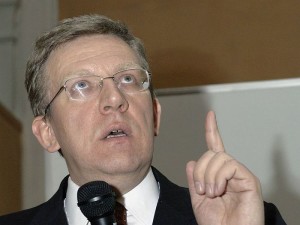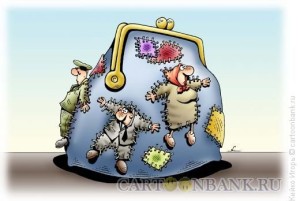
In 2006, thanks to the efforts of the then Minister of Finance of the Russian Federation, Alexei Kudrin, a rule was included in the Budget Code of Russia regarding the adoption of the budget for three consecutive years. However, the Ministry of Finance has recently launched an initiative to repeal this provision and to start adopting the budget for only one year at a time. Kudrin could not resist a criticism: “It happened because there were errors in the forecasts and the absence of reforms in the past years”, but in general he supports the decision of the Ministry of Finance. It is obvious that in the current conditions of high uncertainty, Russian government is trying to narrow the planning horizons.
The budget reform of 2004-2006 was one of the main victories for Kudrin, who during the time of his leadership of the Ministry of Finance sought fiscal tightening. The purpose of the three-year budget plan, starting in 2006, was to limit the appetite of departmental and industries’ lobbyists. As for the political lobbyists, the Kremlin reduced their power during Putin’s first term. This was due not only to the Kremlin ensuring the loyalty of the parliament, but also to a reduction of the number of readings in the State Duma: initially there were four readings, but they were reduced to three, and the main bargain had a so-called “zero reading.” This greatly reduced the power of lobbyists.
During the second presidential term the budget process served the interests of executive power: the main battles over the budget were concentrated in the government. The State Duma participated in the discussions on the leftover principle. The three-year plan helped restrain the appetites of the lobbyists, especially since the Ministry of Finance always intentionally underestimated forecasts of both the level of oil prices and the level of income.
In the current situation the abolition of the three-year budget is first and foremost an anti-crisis solution. It is not just that it is difficult to predict the future. The industry lobbyists use pressure tactics: if state-owned companies have a project that requires money that the budget does not have, it is important to secure at least minimum funding for the first year in order to get more for subsequent years. More optimistic forecasts could be given for the medium-term than for only the next year. It is easier for the Ministry of Finance to close the opportunity for bargaining by eliminating medium-term budgeting completely.
All of this overlaps with another trend: the sharp rise in the ambitions of the Ministry of Finance. Vedomosti, a Russian business daily, wrote that there is an ongoing discussion in the government regarding the absorption of the Ministry of Economic Development by the Ministry of Finance. It is very tempting for the latter to “strangle” a competing ministry, which serves as a traditional opponent, constantly demanding government investments in the “development of the country.” Another rumor suggests possible submission of the Tax and Customs agencies to the Ministry of Finance. The Ministry would then turn into an all powerful mega-agency, if only the Federal Security Service of the Russian Federation (FSB) does not engulf the Customs agency, of course.
 All this potential opened up for the Ministry of Finance as a result of the sharp deterioration of the financial, economic and budgetary situation in the country. Preservation of shrinking budget funds became a top priority of the regime. Russia’s revenues from oil exports between January and July 2015 decreased by 1.7 times in comparison with the same period of 2014, amounting to $56.22 billion. Budget must be cut: for 2016 it will be based on a price of 50 US dollars per barrel, according to Andrei Belousov, an assistant to the president. In such a situation, “consumers” are forced to give priority to the state resources’ “distributors” in the decision-making process. This trend can be stopped only by the rise of the world’s oil prices – no other opportunities exist to help Russian economy out of the crisis. The only problem is that the rest of the world has no interest in such increase.
All this potential opened up for the Ministry of Finance as a result of the sharp deterioration of the financial, economic and budgetary situation in the country. Preservation of shrinking budget funds became a top priority of the regime. Russia’s revenues from oil exports between January and July 2015 decreased by 1.7 times in comparison with the same period of 2014, amounting to $56.22 billion. Budget must be cut: for 2016 it will be based on a price of 50 US dollars per barrel, according to Andrei Belousov, an assistant to the president. In such a situation, “consumers” are forced to give priority to the state resources’ “distributors” in the decision-making process. This trend can be stopped only by the rise of the world’s oil prices – no other opportunities exist to help Russian economy out of the crisis. The only problem is that the rest of the world has no interest in such increase.





